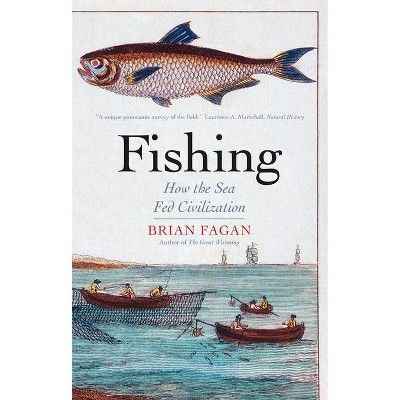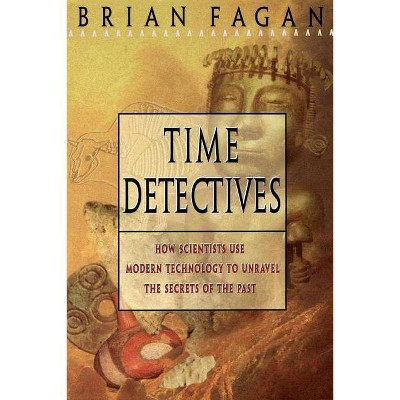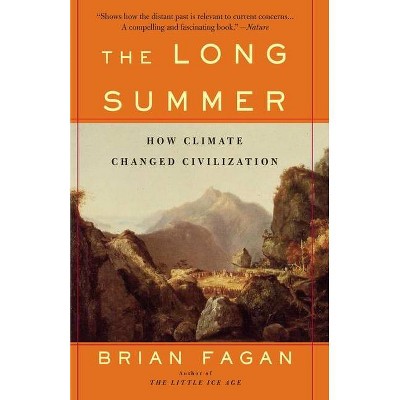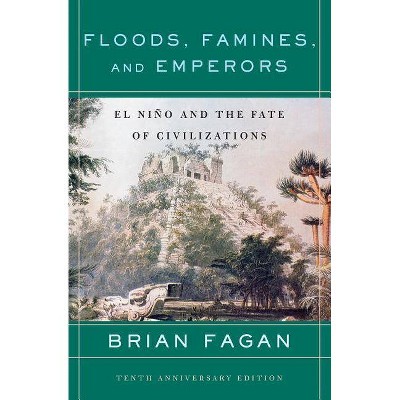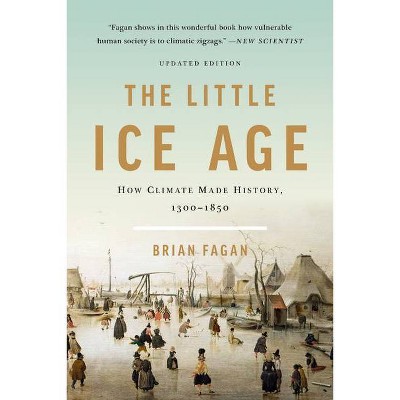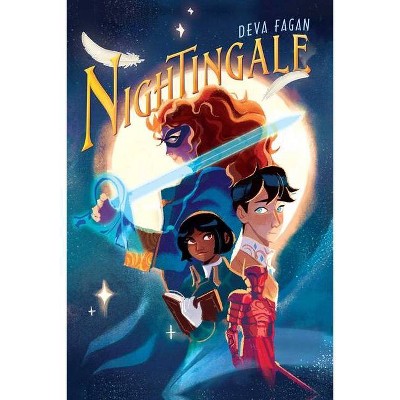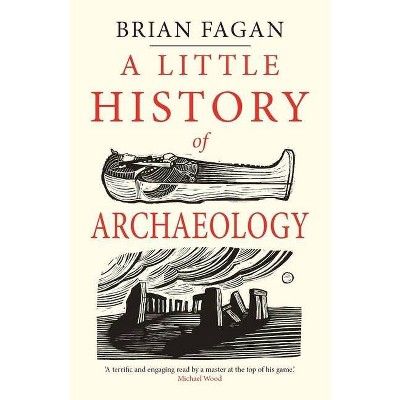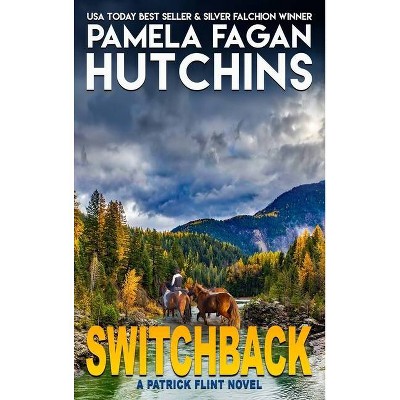Climate Chaos - by Brian Fagan & Nadia Durrani (Hardcover)
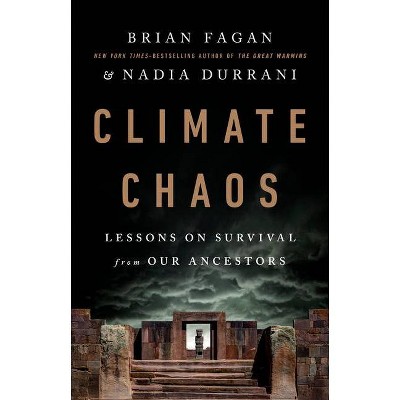
Similar Products
Products of same category from the store
AllProduct info
<p/><br></br><p><b> About the Book </b></p></br></br>"Man-made climate change may have began in the last two hundred years, but humankind has witnessed many eras of climate instability. The results have not always been pretty: once-mighty civilizations felled by pestilence and glacial melt and drought. But we have one powerful advantage as we face our current crisis: history. The study of ancient climates has advanced tremendously in the past ten years, to the point where we can now reconstruct seasonal weather going back thousands of years, and see just how civilizations and nature interacted. The lesson is clear: the societies that survive are the ones that plan ahead. Climate Chaos is thus a book about saving ourselves. Brian Fagan and Nadia Durrani show in remarkable detail what it was like to battle our climate over centuries, and offer us a path to safer and healthier future"--<p/><br></br><p><b> Book Synopsis </b></p></br></br><b>A thirty-thousand-year history of the relationship between climate and civilization that teaches powerful lessons about how humankind can survive.</b> Human-made climate change may have begun in the last two hundred years, but our species has witnessed many eras of climate instability. The results have not always been pretty. From Ancient Egypt to Rome to the Maya, some of history's mightiest civilizations have been felled by pestilence and glacial melt and drought. <p/>The challenges are no less great today. We face hurricanes and megafires and food shortages and more. But we have one powerful advantage as we face our current crisis: the past. Our knowledge of ancient climates has advanced tremendously in the last decade, to the point where we can now reconstruct seasonal weather going back thousands of years and see just how people and nature interacted. The lesson is clear: the societies that survive are those that plan ahead. <p/><i>Climate Chaos</i> is a book about saving ourselves. Brian Fagan and Nadia Durrani show in remarkable detail what it was like to battle our climate over centuries and offer us a path to a safer and healthier future.<p/><br></br><p><b> Review Quotes </b></p></br></br><br>"[A] rich survey of the past 30,000 years."--<i><b>Nature</b></i><br><br>"Impassioned...educational...Fagan and Durrani's work offers an original historical perspective."--<i><b>Publishers Weekly</b></i><br><br><i>"Climate Chaos: Lessons on Survival from Our Ancestors</i> by Brian Fagan and Nadia Durrani is a tour de force because of its relevance to deal with global climate change. The authors ask, what can we learn from past successes and failures? The takeaway are six major lessons critical for our survival. Their clearly written and concise book includes [hi]stories beginning 30,000 years ago up through the Anthropocene. Case studies cover the cold (Ice Age) and the hot and dry (ancient Egypt) and hot and humid (the Maya), from nomadic hunters (early Africa and Europe) to empires (Rome), from megadroughts (American Southwest) to monsoons (Angkor)."--<i><b>Lisa Lucero, professor of anthropology, University of Illinois, Champaign-Urbana</b></i><br><br>"Climate change is happening right now--but has happened many times before, too. <i>Climate Chaos</i> tells an astonishing story of thousands of years of wildfires, megadroughts, cataclysmic cyclones and floods, decades-long heat waves and sudden regional ice ages. As we respond to contemporary climate change, our great advantage over our ancestors is scientific knowledge. Will we use that knowledge wisely? <i>Climate Chaos</i> shows how."--<i><b>Gregg Easterbrook, member of the American Academy of Arts and Sciences and author of The Blue Age</b></i><br><br>"It is often said that those who fail to study history are doomed to repeat it. Human-caused climate change constitutes the greatest challenge we have yet faced as a civilization, and we must learn from our past if we are to meet that challenge. I can think of no better source than <i>Climate Chaos</i> by Brian Fagan and Nadia Durrani, which explores how our ancestors coped with the challenges of natural climate instability, offering some lessons along the way for how we can avert a climate crisis."--<i><b>Michael E. Mann, distinguished professor of atmospheric science at Penn State University and author of The New Climate War</b></i><br><p/><br></br><p><b> About the Author </b></p></br></br><b>Brian Fagan</b> is one of the world's leading archaeological writers and an internationally recognized authority on world prehistory. He is a Distinguished Emeritus Professor of Anthropology at the University of California, Santa Barbara, and the author of several widely read books on ancient climate change. He has lectured about the subject to audiences large and small throughout the world. His latest book is <i>Fishing</i>: <i>How the Sea Fed Civilization</i> (Yale University Press, 2018). <br><b>Nadia Durrani</b> is a Cambridge University-trained archaeologist and writer, with a PhD in Arabian archaeology. She is the editor and founder of Past Worlds magazine, and is co-author, with Brian Fagan, of several books including What we Did in Bed and Bigger Than History.
Price History
Price Archive shows prices from various stores, lets you see history and find the cheapest. There is no actual sale on the website. For all support, inquiry and suggestion messages communication@pricearchive.us
